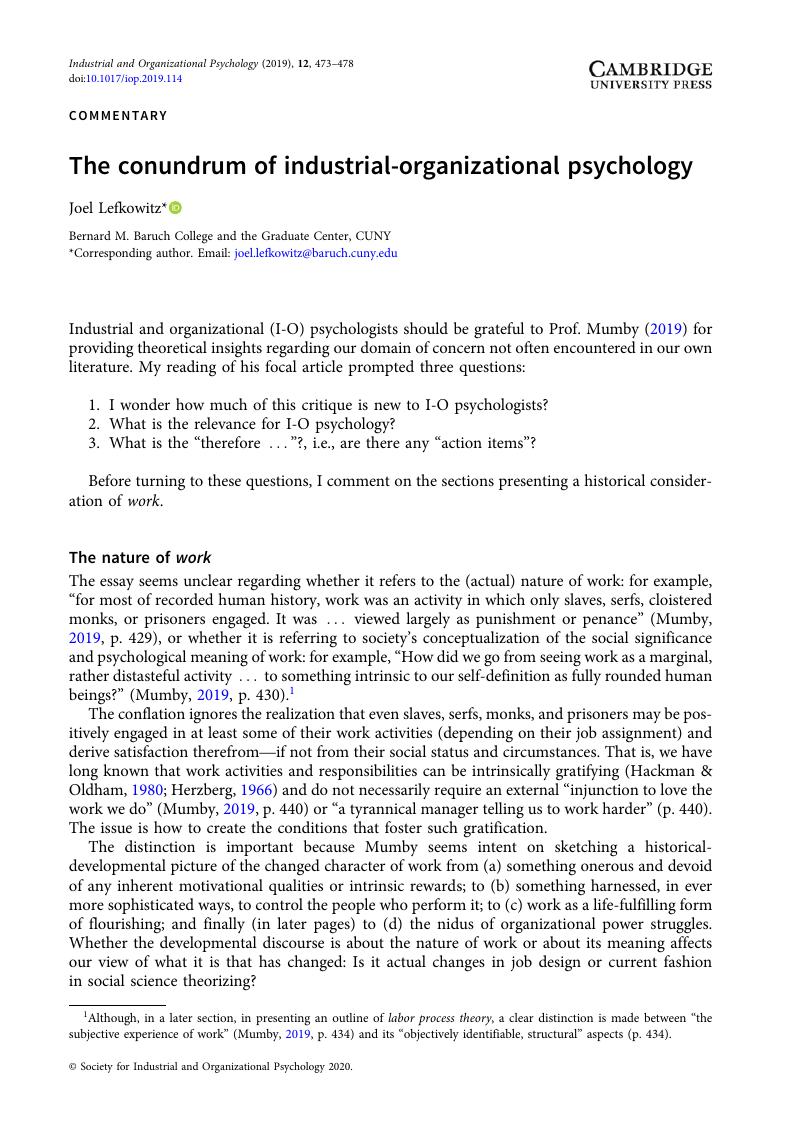Crossref Citations
This article has been cited by the following publications. This list is generated based on data provided by Crossref.
Jimenez, William P.
2020.
Successfully aging at work or successfully working while aging? The importance of older workers’ psychological well-being.
Industrial and Organizational Psychology,
Vol. 13,
Issue. 3,
p.
422.
Lefkowitz, Joel
2022.
Organizational outcomes: It’s not (only) a levels issue.
Industrial and Organizational Psychology,
Vol. 15,
Issue. 3,
p.
432.
Dashtipour, Parisa
Gerard, Nathan
and
Rolo, Duarte
2024.
Toward an Ethics of Ambiguity in Critical Work and Organizational Psychology: From ‘Blank’ to ‘Troubled’ Subjectivity.
Journal of Business Ethics,



